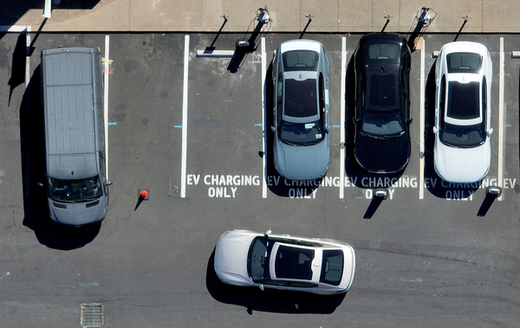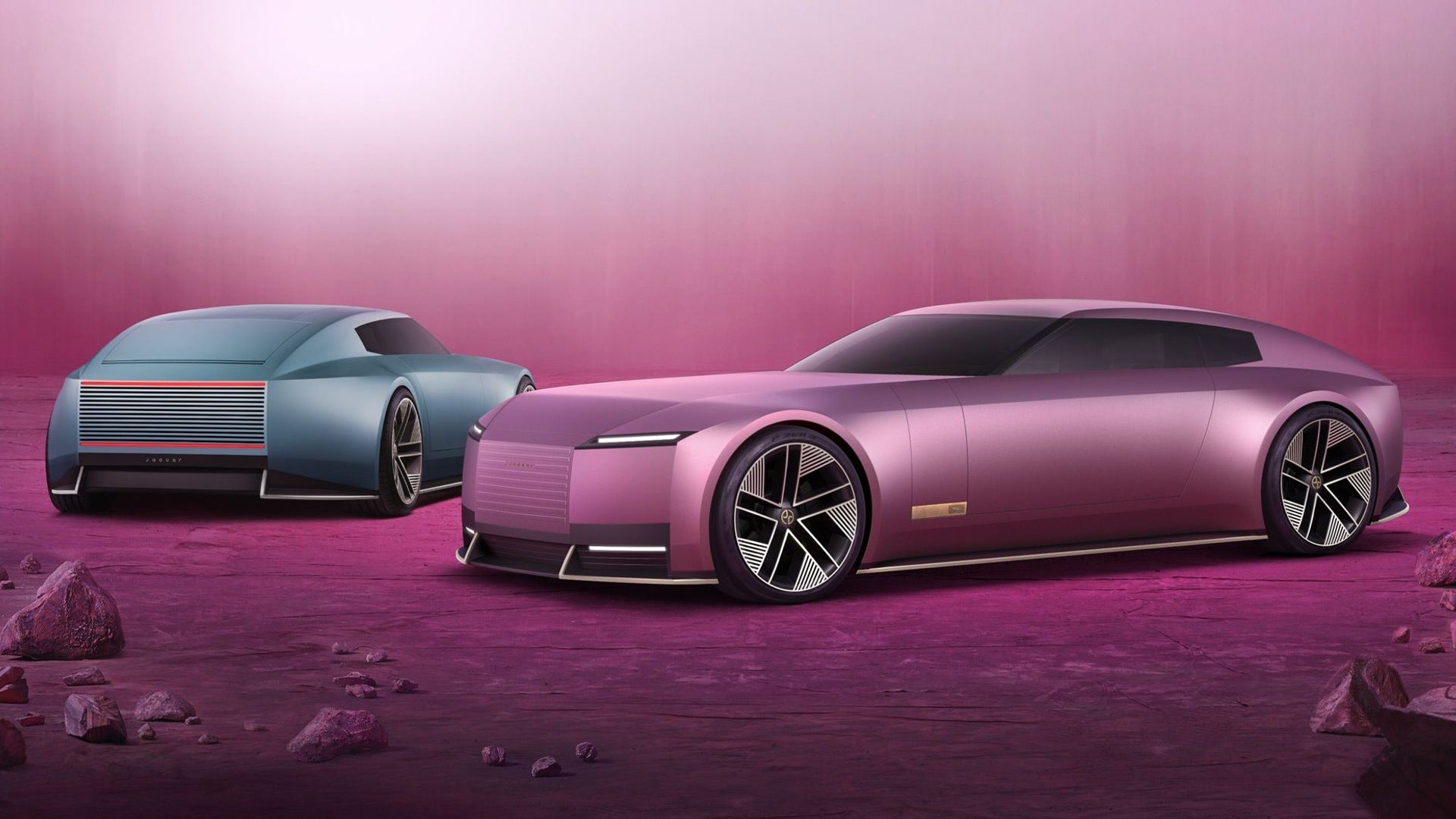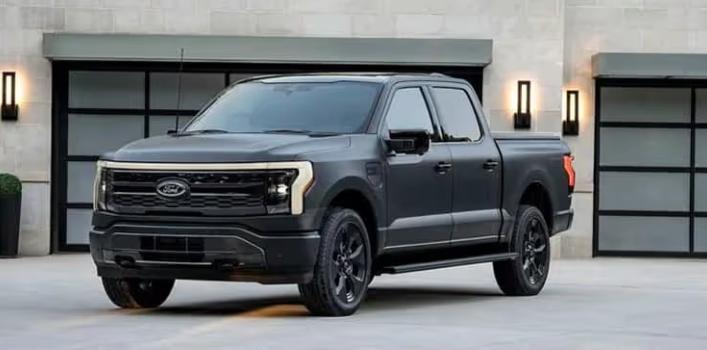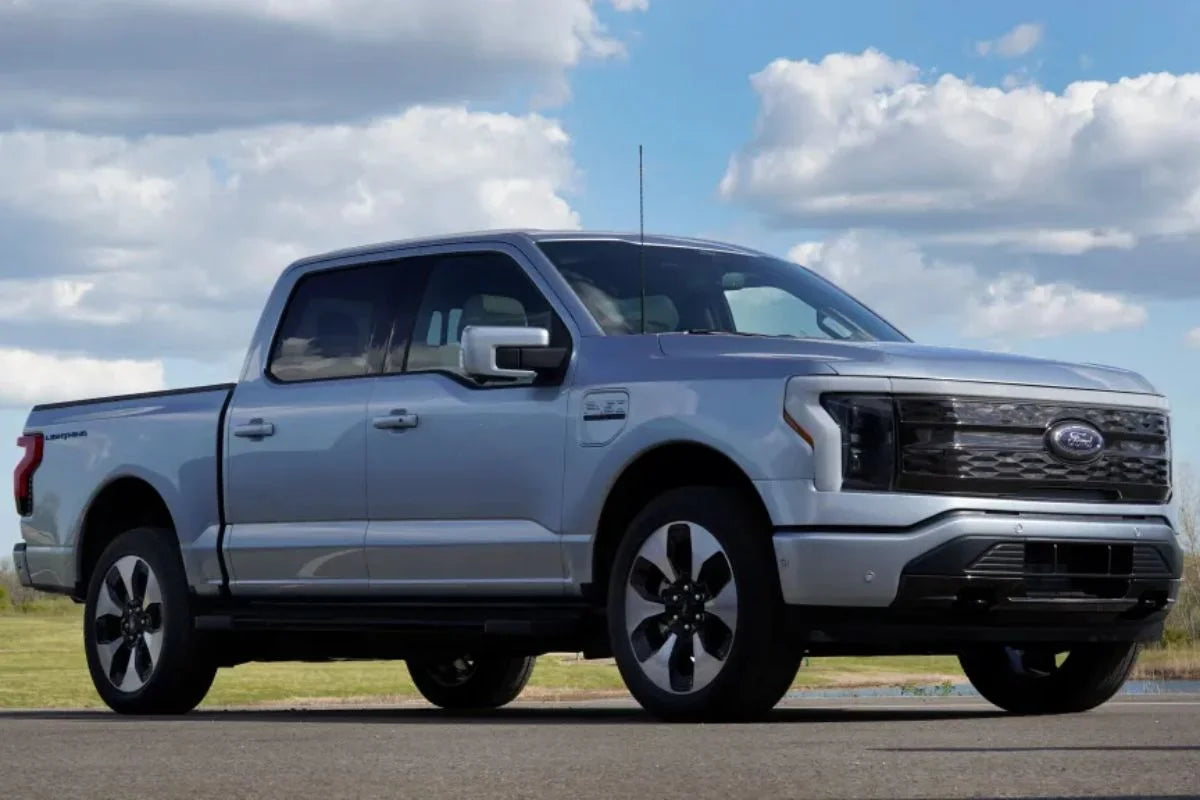Table des matières
Incitations, rabais et crédits d'impôt pour les véhicules électriques en Arizona
Rabais et crédits d'impôt pour les bornes de recharge pour véhicules électriques en Arizona
Tarifs de recharge des véhicules électriques en Arizona
L'Arizona se lance dans la révolution des véhicules électriques et propose une gamme d'incitations attractives pour encourager les conducteurs à adopter des modes de transport plus écologiques. Grâce à son ensoleillement abondant et à son engagement croissant en faveur du développement durable, l'Arizona facilite non seulement l'accès aux véhicules électriques, mais veille également à ce que la transition vers la conduite électrique soit abordable. Des remises à l'achat de véhicules électriques aux incitations pour l'installation de bornes de recharge à domicile, l'État offre à ses habitants des incitations financières visant à réduire les coûts et à favoriser l'adoption des véhicules électriques. Dans cet article, nous explorerons les différentes remises, crédits d'impôt et incitations à la recharge disponibles en Arizona, et comment profiter de ces programmes pour économiser tout en contribuant à un avenir plus propre et plus vert.
Incitations, rabais et crédits d'impôt pour les véhicules électriques en Arizona

En 2024, même si l'État de l'Arizona n'offre peut-être pas d'incitations directes à l'achat d'un véhicule électrique, telles que des crédits d'impôt ou des rabais, les conducteurs de véhicules électriques peuvent toujours profiter de plusieurs avantages précieux.
Les conducteurs de véhicules électriques peuvent gagner du temps grâce à une exemption de voie réservée aux véhicules multioccupants à l'échelle de l'État et éviter les tracas liés aux exigences annuelles de test d'émissions de l'État - un excellent avantage pour ceux qui souhaitent une expérience de conduite plus fluide tout en contribuant à un environnement plus propre.
De plus, les résidents peuvent profiter des économies fédérales et des incitations locales de la ville ou du concessionnaire pour conduire un véhicule électrique.
Rabais et crédits d'impôt pour les bornes de recharge pour véhicules électriques en Arizona

L'un des meilleurs moyens d'économiser sur l'installation d'une borne de recharge pour véhicule électrique en Arizona est de contacter votre fournisseur d'énergie local. Plusieurs fournisseurs d'énergie de l'Arizona proposent des solutions pour économiser sur l'achat et l'installation d'une borne de recharge de niveau 2 pour votre véhicule électrique. Ces réductions peuvent être combinées aux réductions fédérales pour une réduction encore plus importante.
De plus, le coût de recharge d’un véhicule électrique est nettement inférieur à celui de l’alimentation d’un moteur à combustion interne, ce qui fait de la recharge de véhicule électrique une excellente option pour les conducteurs de l’État.
Rabais sur les bornes de recharge pour véhicules électriques des services publics de l'Arizona
Quatre services publics en Arizona proposent actuellement des remises sur les chargeurs et d’autres incitations pour aider les résidents de l’État à économiser sur l’électrification.
Incitations à la recharge des véhicules électriques dans le service public de l'Arizona
Arizona Public Service est le plus grand fournisseur d'électricité de l'État, avec 1,4 million de clients . Ces derniers peuvent bénéficier d'une prime initiale de 25 $ et d'un crédit mensuel de 5 $ en adhérant au programme SmartCharge. Ce programme recueillera des données sur les habitudes de recharge des véhicules électriques sur le territoire desservi par l'entreprise.
Incitations à la recharge des véhicules électriques du projet Salt River (SRP)
Les clients résidentiels du projet Salt River peuvent bénéficier d'une remise de 250 $ sur un chargeur de véhicule électrique de niveau 2 acheté via le marché SRP.
Les clients commerciaux peuvent recevoir des remises allant jusqu'à 2 500 $ par port de recharge de niveau 2 installé dans un local commercial, tandis que les bâtiments gouvernementaux, les propriétés multifamiliales, les organismes sans but lucratif et les écoles peuvent obtenir jusqu'à 4 000 $ par port pour économiser sur l'installation d'un chargeur de véhicule électrique commercial.
Le service public offre également jusqu'à 20 000 $ pour l'installation d'une à quatre bornes de recharge rapide en courant continu pour les entreprises et 25 000 $ pour les administrations publiques, les immeubles collectifs, les organismes à but non lucratif et les écoles. Un financement supplémentaire pouvant atteindre 1 000 $ est disponible pour les propriétés commerciales situées dans des quartiers défavorisés.
En plus des chargeurs de véhicules électriques, les entreprises peuvent également bénéficier de remises sur les chariots élévateurs électriques , les autolaveuses, les transpalettes, les nacelles élévatrices et bien plus encore.
Incitations à la recharge des véhicules électriques de Tuscon Electric Power
Tucson Electric Power offre une remise pouvant aller jusqu'à 500 $ sur l'achat d'une borne de recharge pour véhicules électriques résidentielle connectée de niveau 2, couvrant jusqu'à 75 % du prix d'achat. Après l'achat, vous pouvez soumettre un formulaire de remboursement ou obtenir une remise instantanée en effectuant votre achat sur la plateforme du fournisseur d'électricité. De plus, si vous construisez une maison neuve, le fournisseur d'électricité vous offrira 100 $ pour le pré-câblage de votre domicile pour la recharge de votre véhicule électrique. Notez que vous ne pourrez pas bénéficier de cette incitation si votre nouvelle maison est située dans une juridiction appliquant une réglementation sur la recharge des véhicules électriques.
Si vous êtes une entreprise et que vous utilisez Tucson Electric Power pour votre électricité, vous pouvez bénéficier de leur programme de remboursement pour la recharge de véhicules électriques commerciaux et recevoir jusqu'à 4 000 $ pour une borne de recharge de niveau 2 sur votre lieu de travail , avec un plafond de remboursement pouvant atteindre 75 % du coût du projet. Les projets de recharge de véhicules électriques multifamiliaux et de niveau 2 pour les organismes à but non lucratif peuvent recevoir jusqu'à 5 400 $ par borne, et tous les projets de recharge rapide en courant continu peuvent recevoir jusqu'à 20 500 $. Un financement supplémentaire est également disponible pour les propriétés situées dans des quartiers défavorisés.
Incitations à la recharge des véhicules électriques d'UniSource Energy Service
UniSource Energy Service (UES) offre une remise de 500 $ pour aider les résidents à économiser sur l'achat d'un chargeur EV de niveau 2, couvrant jusqu'à 75 % du prix d'achat.
Les clients commerciaux peuvent bénéficier de remises supplémentaires grâce au programme de recharge intelligente pour véhicules électriques (RVE) du service public. Ce programme offre des remises de 1 200 $ pour les bornes de recharge de niveau 2 destinées aux lieux de travail et aux immeubles collectifs, ainsi que jusqu'à 12 000 $ par borne rapide CC. Pour les projets de recharge des transports en commun, le service public offre jusqu'à 40 000 $ pour les bornes rapides CC.
Un financement supplémentaire est également disponible pour les installations de bornes de recharge pour véhicules électriques dans les communautés défavorisées.
Tarifs de recharge des véhicules électriques en Arizona

L'Arizona est le neuvième État en termes d'adoption de véhicules électriques, avec plus de 84 000 véhicules électriques immatriculés , ce qui témoigne du soutien croissant de l'État aux transports propres.
Les propriétaires de véhicules électriques bénéficient des tarifs d'électricité bas de l'État et, avec 11 services publics proposant également des options de facturation en fonction de l'heure d'utilisation, les conducteurs peuvent maximiser davantage leurs économies tout en profitant des avantages de l'électrification.
Service public de l'Arizona (APS)
APS propose un forfait horaire avec un tarif de demande qui vous permet de facturer à partir de 0,05943 $ par kWh en été et 0,03495 $ par kWh en hiver, en heures creuses. Le tarif de demande est calculé sur la consommation pendant les heures de pointe, ce qui rend ce programme idéal si vous pouvez étaler votre consommation d'énergie tout au long de la journée.
Vous pouvez également opter pour un programme de consommation horaire sans frais de demande. Le tarif en heures creuses est légèrement plus élevé, mais ce programme offre une option plus flexible si vous ne pouvez pas échelonner votre consommation d'énergie. Vous paierez 0,12345 $ par kWh en heures creuses en été et 0,03495 $ par kWh en heures extrêmement creuses en hiver.
Les clients commerciaux peuvent également bénéficier de plans d'utilisation avec des tarifs basés sur l'utilisation, ce qui aide les clients à économiser sur la recharge de leur flotte électrique.
Ville de Mesa
La ville de Mesa propose un forfait horaire aux propriétaires ou aux locataires de véhicules électriques. Vous réaliserez le plus d'économies en décalant votre consommation d'électricité entre 23 h et 5 h grâce au tarif exceptionnel hors pointe. Vous pouvez également bénéficier d'un tarif réduit hors pointe en dehors de la plage horaire de 14 h à 21 h en été et de la plage horaire de 5 h à 9 h et de 17 h à 21 h en hiver, en semaine.
Coopérative électrique de Duncan Valley
Le forfait horaire de l'entreprise comprend un tarif hors pointe de 0,05778 $ par kWh de 19 h à 13 h le lendemain en été. En hiver, vous paierez 0,05778 $ par kWh si vous rechargez en dehors des plages horaires de 6 h à 9 h et de 18 h à 21 h.
Association d'énergie de Garkane
L'association Garkane Power propose un plan d'utilisation appelé Half-Price Power, où vous paierez 0,117 $ par kWh en heures de pointe pendant les heures de pointe - de 6 h à 11 h en hiver et de 15 h à 21 h en été - et bénéficierez d'un tarif réduit de 0,0558 $ par kWh en dehors de ces périodes de pointe.
Coopérative électrique de Mohave
Vous pouvez économiser en payant 0,18 $ par kWh en heures pleines et seulement 0,03 $ par kWh en heures creuses pour vos 400 premiers kWh par mois. Les heures pleines s'étendent de 12 h à 19 h 30 en semaine en été, et de 6 h à 10 h et de 17 h à 22 h en hiver.
Coopérative électrique de Navopache
La coopérative électrique Navopache vous permet d'économiser sur la recharge de votre véhicule électrique grâce à son programme de tarification horaire. En hiver, vous paierez 0,15635 $ par kWh aux heures de pointe, de 6 h à 11 h et de 17 h à 22 h, tandis que votre tarif hors pointe sera de 0,05584 $ par kWh. En été, vous paierez 0,15635 $ par kWh aux heures de pointe, de 15 h à 22 h, et 0,05584 $ par kWh en dehors de ces heures.
Projet Salt River
Le plan de recharge pour véhicules électriques du projet Salt River peut vous faire économiser 8,6 % sur vos factures d'énergie, selon le service public. Vous paierez 0,0769 $ par kWh de 23 h à 5 h en hiver et 0,0787 $ par kWh en été.
Coopérative électrique de Sulphur Springs Valley
Le forfait horaire de recharge du fournisseur d'électricité vous permet d'économiser sur la recharge de votre véhicule électrique grâce à un tarif de 0,0674 $/kWh en heures creuses entre 19 h et 13 h le lendemain en été et de 0,0674 $/kWh de 9 h à 18 h et de 21 h à 6 h en hiver. Le tarif en heures de pointe est de 0,2041 $/kWh tout au long de l'année.
Coopérative électrique Trico
La coopérative Trico Electric propose deux tarifs flexibles selon l'heure de consommation. Le premier offre une réduction de 45 % sur les 400 premiers kWh consommés chaque mois, pendant les heures creuses, de 22 h à 5 h. Cela signifie que vous paierez 0,065 $ par kWh en rechargeant la nuit, au lieu du tarif standard de 0,117 $ par kWh en dehors de ces heures creuses.
La deuxième option est un forfait de recharge illimitée . Le fournisseur d'électricité installera et gérera une borne de recharge de niveau 2 à votre domicile. Vous bénéficierez ainsi d'une recharge illimitée de 9 h à 16 h et de 22 h à 6 h, pour un forfait à partir de 64 $ par mois. Si vous rechargez votre véhicule électrique en dehors de ces horaires, vous paierez 0,25 $ de plus par kWh.
Tucson Electric Power
Tucson Electric Power propose également deux forfaits horaires . Le premier offre un tarif de base de 12 $ par mois, auquel s'ajoute un tarif par kWh variable selon que vous rechargez votre électricité en heures creuses ou en heures pleines.
En été, les tarifs commencent à 0,1927 $ par kWh en heures pleines et à 0,1219 $ par kWh en heures creuses. En hiver, les tarifs commencent à 0,1333 $ par kWh en heures pleines et à 0,1248 $ par kWh en heures creuses.
Le fournisseur propose également un forfait horaire avec frais de demande . Selon votre consommation, vous paierez des frais de demande de 11,60 $ ou 16,85 $ par mois, en plus du forfait de base de 12 $. Vous bénéficierez également de tarifs exceptionnels hors pointe de 0,019 $ par kWh de 22 h à 5 h. Les tarifs en heures pleines et hors pointe seront également inférieurs à ceux du forfait horaire standard.
UNS Electric Inc
UNS Electric Inc. propose trois formules de forfaits horaires à ses clients résidentiels. La formule la plus avantageuse offre un tarif exceptionnel pour les véhicules électriques. Les tarifs d'été varient entre 0,14 $ par kWh en heures de pointe et 0,04 $ par kWh en heures exceptionnelles, tandis que les tarifs d'hiver varient entre 0,03 $ et 0,12 $ par kWh en heures de pointe et en heures exceptionnelles, respectivement. Les heures exceptionnelles sont comprises entre 22 h et 5 h.
Si vous pouvez échelonner votre consommation d'électricité, le forfait à la demande proposé par votre fournisseur d'électricité peut s'avérer très avantageux. Au lieu de payer des frais d'énergie variant de 0,04 $ à 0,05 $ par kWh selon votre consommation, vous paierez un forfait de 6,82 $ pour les 7 premiers kW consommés en heure de pointe, puis de 9,61 $ par la suite.
Vous pouvez également souscrire à un forfait standard en fonction de l'heure d'utilisation , ce qui peut être utile pour réduire le coût de votre consommation globale d'électricité, y compris la recharge des véhicules électriques. Cependant, les tarifs sont légèrement plus élevés que ceux du forfait en fonction de l'heure d'utilisation des véhicules électriques et vous ne bénéficierez pas des tarifs super hors pointe.
L'engagement de l'Arizona en faveur des énergies propres et des transports durables se reflète dans son vaste programme de remises et d'incitations à la recharge pour véhicules électriques. Que vous achetiez un véhicule électrique pour la première fois ou que vous souhaitiez installer une borne de recharge à domicile, ces incitations facilitent et rendent la conduite électrique plus abordable. Dans le cadre des efforts constants de l'État en faveur du développement durable et de la réduction des émissions de carbone, profiter des programmes de l'Arizona vous permettra non seulement de réaliser des économies, mais aussi de jouer un rôle clé dans l'avenir des transports. Tenez-vous informé des nouvelles offres et incitations pour optimiser votre investissement dans un véhicule électrique et profiter d'une expérience de conduite plus propre et plus écologique dans l'État du Grand Canyon.
Voir plus de blogs sur la taxe EV sur le site officiel d'EVDANCE.








Partager:
Tesla réduit les prix des superchargeurs alors que l'utilisation du réseau atteint un niveau record
Maximiser les économies : Rabais et incitations à la recharge pour véhicules électriques dans le Massachusetts